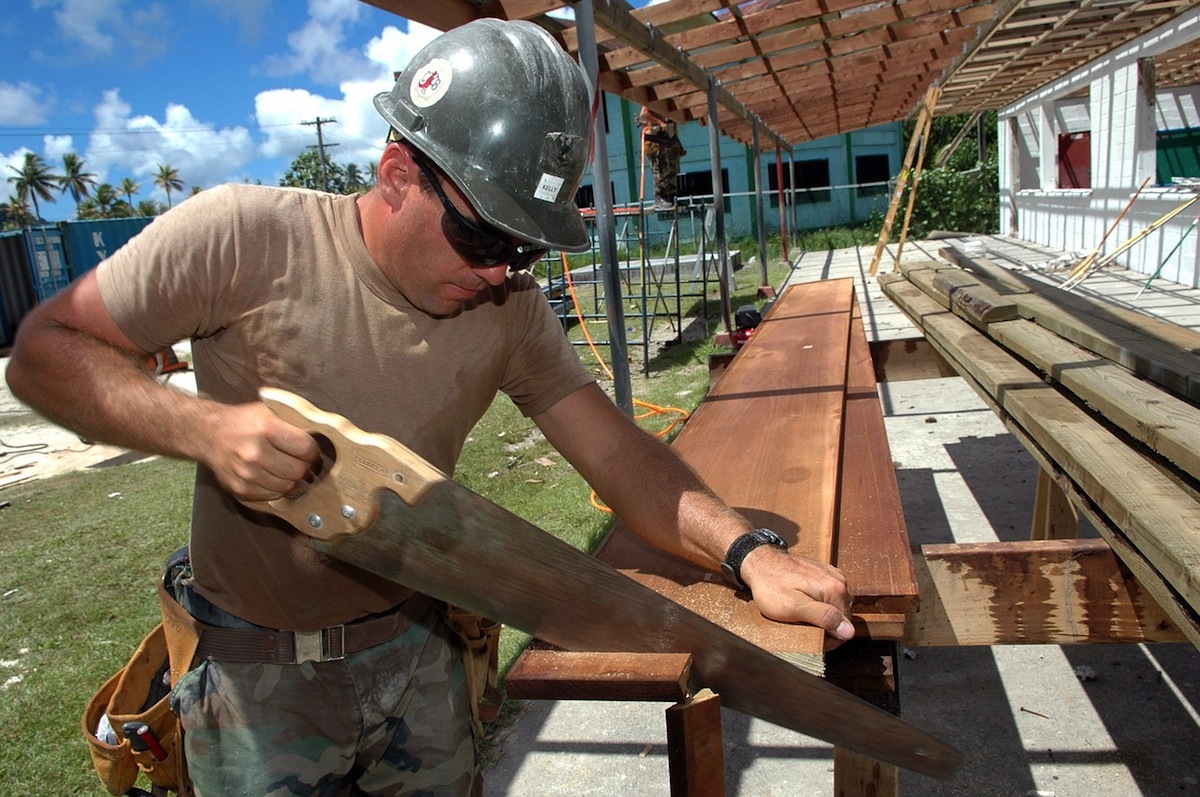A new report from the Bureau of Labor Statistics found that the U.S. construction industry added 45,000 jobs during the month of April. According to Associated Builders and Contractors, nonresidential construction employment rose by 12,400 jobs in April while nonresidential specialty trade contractors added 20,200 new jobs following a loss of 9,000 jobs in March.

The following is a breakdown of construction employment in April:
• Nonresidential building construction employment fell by 7,800 jobs for the month but is up by 16,600 jobs (2.4 percent) from the same time last year.
• The heavy and civil engineering construction segment added 8,400 jobs in April and employment is up by 33,100 positions (3.6 percent) year-over-year.
• Residential building construction employment expanded by 2,800 jobs in April and is up by 41,200 jobs (6.3 percent) on an annual basis.
• Residential specialty trade contractors added 20,800 net new jobs in April and has added 102,400 jobs (6.8 percent) since April 2014.
• Nonresidential specialty trade contractors added 20,200 jobs for the month and employment in that category is up by 76,400 jobs (3.5 percent) from the same time last year.
Mining and logging lost 15,000 net jobs in April after gaining jobs in every month during 2014. This sector lost more jobs during the first quarter of 2015 (-48,000) than it added in all of 2014.
“While the broader jobs report proved better than expected, April was the best month for construction employment since January 2014,” said Associated Builders and Contractors Chief Economist Anirban Basu. “Though it may have been expected to see solid job creation performance reflected in today’s report, it is still a relief to obtain a nice piece of data. Economic data regarding retail sales, industrial production, and other elements of economic life have largely been disappointing to date and the March jobs report fell in line with that series of uninspired results. Data regarding unemployment claims strongly suggested that employers viewed the recent bout of economic weakness as temporary. The lack of new lay-off activity indicates an ongoing demand for labor and April’s reasonably strong employment gains suggest that many employers continue to search for additional staffing."
Related Stories
| Aug 11, 2010
Platinum Award: The Handmade Building
When Milwaukee's City Hall was completed in 1896, it was, at 394 feet in height, the third-tallest structure in the United States. Designed by Henry C. Koch, it was a statement of civic pride and a monument to Milwaukee's German heritage. It was placed on the National Register of Historic Places in 1973 and designated a National Historic Landmark in 2005.
| Aug 11, 2010
Gulf Coast Hotel's Stormy Road to Recovery
After his initial tour of the dilapidated 1850s-era Battle House Hotel, Ron Blount, construction manager with Retirement Systems of Alabama, said to his boss: “You need a priest more than you need a contractor.” Those words were more prescient to RSA's restoration of the historic Mobile landmark than he could have known at the time.
| Aug 11, 2010
Great Solutions: Products
14. Mod Pod A Nod to Flex Biz Designed by the British firm Tate + Hindle, the OfficePOD is a flexible office space that can be installed, well, just about anywhere, indoors or out. The self-contained modular units measure about seven feet square and are designed to serve as dedicated space for employees who work from home or other remote locations.
| Aug 11, 2010
8 Tips for Converting Remnant Buildings Into Schools
Faced with overcrowded schools and ever-shrinking capital budgets, more and more school districts are turning to the existing building stock for their next school expansion project. Retail malls, big-box stores, warehouses, and even dingy old garages are being transformed into high-performance learning spaces, and at a fraction of the cost and time required to build classrooms from the ground up.
| Aug 11, 2010
Fleet Library, Rhode Island School of Design
When tasked with transforming an early 1920s Italian Renaissance bank building into a fully functional library for the Rhode Island School of Design, the Building Team for RISD's Fleet Library found itself at odds with the project's two main goals. On the one hand, the team would have to carefully restore and preserve the historic charm and ornate architectural details of the landmark space, d...
| Aug 11, 2010
John Adams Courthouse
After more than a century without a substantial renovation, Old Suffolk County Courthouse, designed in Neo-Classical style by Boston's first city architect, George Clough, was overdue for a facelift. Enter the makeover team: Boston-based architects Childs, Bertman, Tseckares and general contractors Suffolk Construction/NER Construction Management.
| Aug 11, 2010
Lifestyle Hotel Trends Around the World
When the Rocco Forte Collection opens the Verdura Golf & Spa Resort in Sicily in early 2009, the 200-room luxury property will be one of the world's newest lifestyle hotels. Lifestyle hotels cater to guests seeking a heightened travel experience, which they deliver by offering distinctive—some would say avant-garde, or even outrageous—architecture, room design, amenities, and en...
| Aug 11, 2010
Special Recognition: Kingswood School Bloomfield Hills, Mich.
Kingswood School is perhaps the best example of Eliel Saarinen's work in North America. Designed in 1930 by the Finnish-born architect, the building was inspired by Frank Lloyd Wright's Prairie Style, with wide overhanging hipped roofs, long horizontal bands of windows, decorative leaded glass doors, and asymmetrical massing of elements.
| Aug 11, 2010
Giants 300 Index and Methodology
BD+C's annual Giants 300 list consists of U.S. firms that designed or constructed the largest volume of commercial, institutional, industrial, and multifamily residential buildings in 2008. Each spring, the editors survey the country's largest firms, ranking the top 300 across six categories: architects, architect/engineers, engineers, engineer/architects, contractors, and construction managers.
| Aug 11, 2010
Joint-Use Facilities Where Everybody Benefits
Shouldn’t major financial investments in new schools benefit both the students and the greater community? Conventional wisdom says yes, of course. That logic explains the growing interest in joint-use schools—innovative facilities designed with shared spaces that address the education needs of students and the community’s need for social, recreation, and civic spaces.







